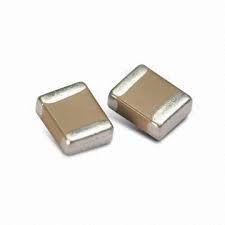In the good old days, with low k dielectrics like NP0 and X7R, you could well have expected caps to be reasonably interchangable. In low value, <100nF ballpark, this is probably still the case.
Now, with new high k X5R and Y5U types, which are pushing capacitance per volume to eye-watering densities, and temperature and voltage coefficients exploring the worst the market will accept, things are different. The dielectric code, X7R for instance, defines the temperature coefficient, not the voltage coefficient. A Y5U from two different manufacturers might have two different voltage coefficients. A Y5U range of capacitors in the same range from the same manufacturer might have caps with the same value with different voltage coefficients in different package sizes, as they try to cram a given value into a given package or voltage rating.
If a parameter matters to you, test it. If the capacitance stability matters to you, get the manufacturer's voltage and temperature coefficient specification for that cap value, voltage and package size as well. If they don't make this available, don't use that manufacturer.

